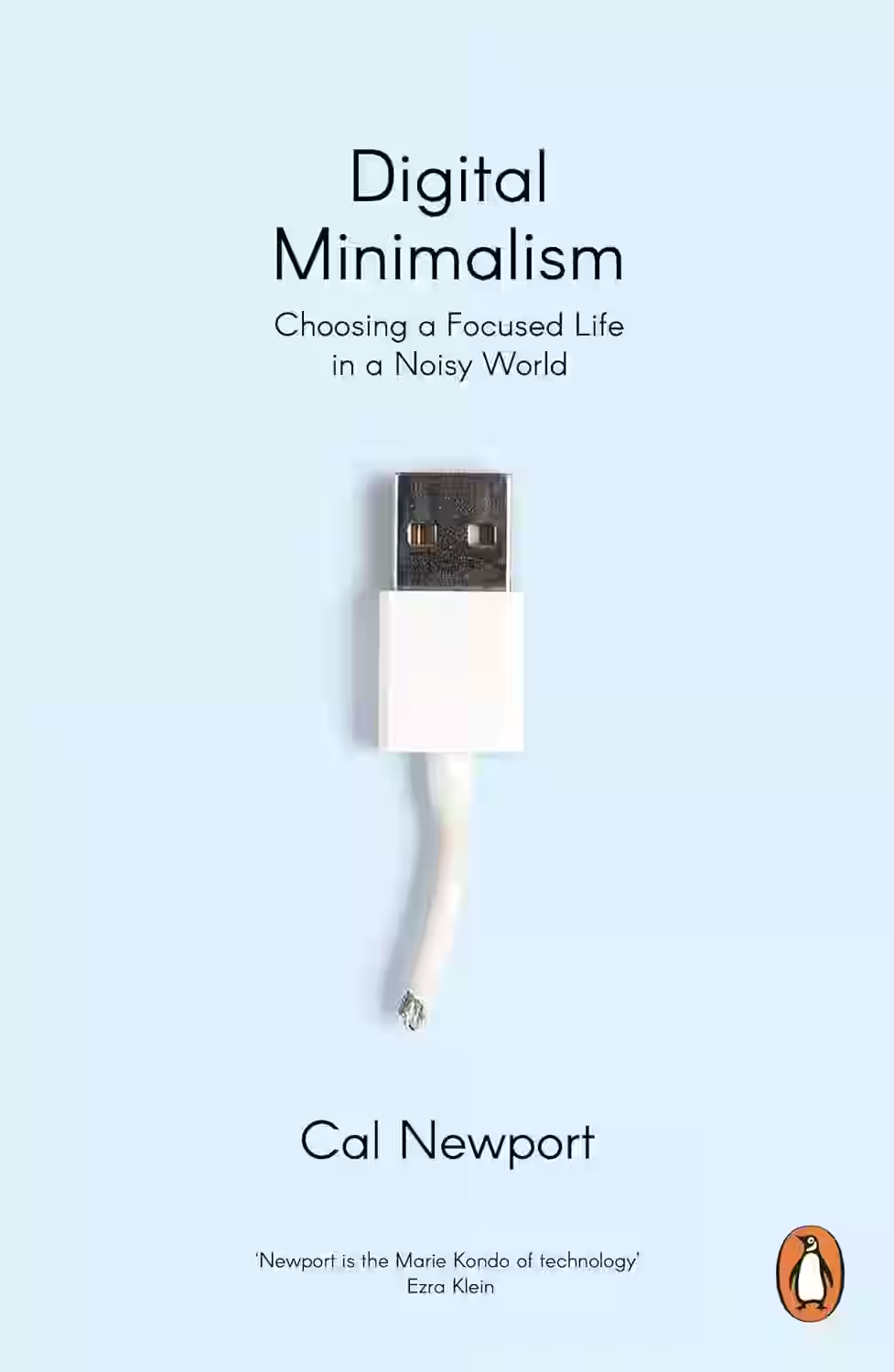
In 'Digital Minimalism', Cal Newport presents a compelling argument for reevaluating our relationship with technology to reclaim our focus, productivity, and mental well-being. Newport guides readers through practical strategies to minimize digital clutter, prioritize meaningful activities, and cultivate more intentional use of digital tools. By drawing on psychology, sociology, and behavioral economics, Newport challenges us to reassess the value technology adds to our lives and advocates for a more mindful approach to digital consumption. This thought-provoking book offers a roadmap for leading a more deliberate, fulfilling life in today's tech-saturated world.
About Cal Newport
An American author and computer science professor known for his books on productivity, focus, and the impact of technology on our lives. His works, such as Deep Work and Digital Minimalism, offer practical strategies for cultivating focused work habits and reclaiming attention in an increasingly distracted world. Newport's research-backed advice has made him a leading voice in the field of productivity and mindful technology use.
Other Books by Cal Newport
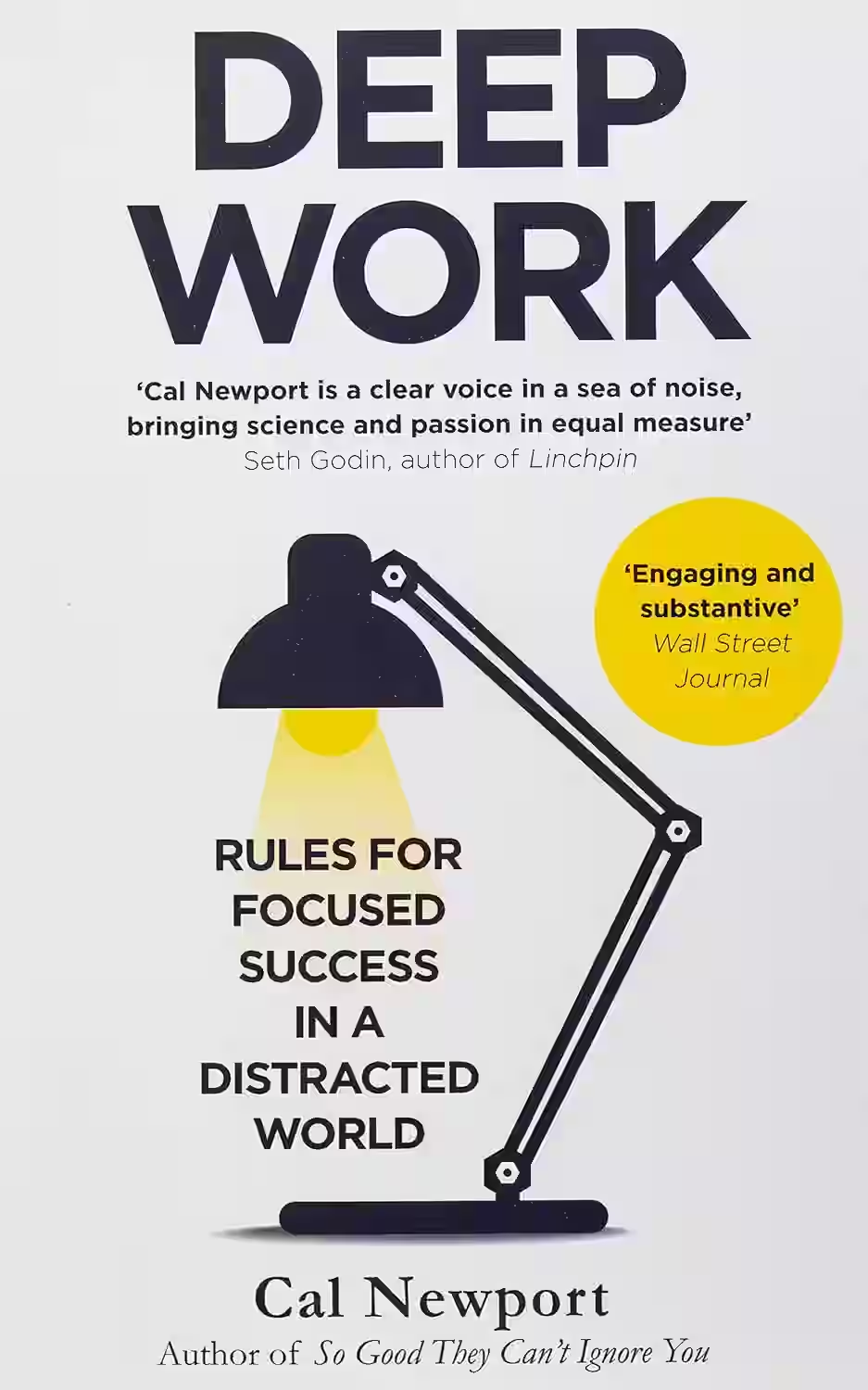
Deep Work
by Cal Newport
In Deep Work, Cal Newport argues that focused, distraction-free work is the key to success in an increasingly distracted world. He contrasts deep work—cognitively demanding tasks done in uninterrupted concentration—with shallow work, like emails and meetings, that erode productivity. Using research, case studies, and practical advice, Newport teaches strategies to develop focus, reduce digital distractions, and structure your time for maximum impact. Whether you're a creative professional or entrepreneur, Deep Work offers a blueprint for achieving more meaningful results. It’s a guide to thriving in the information age by reclaiming your attention.
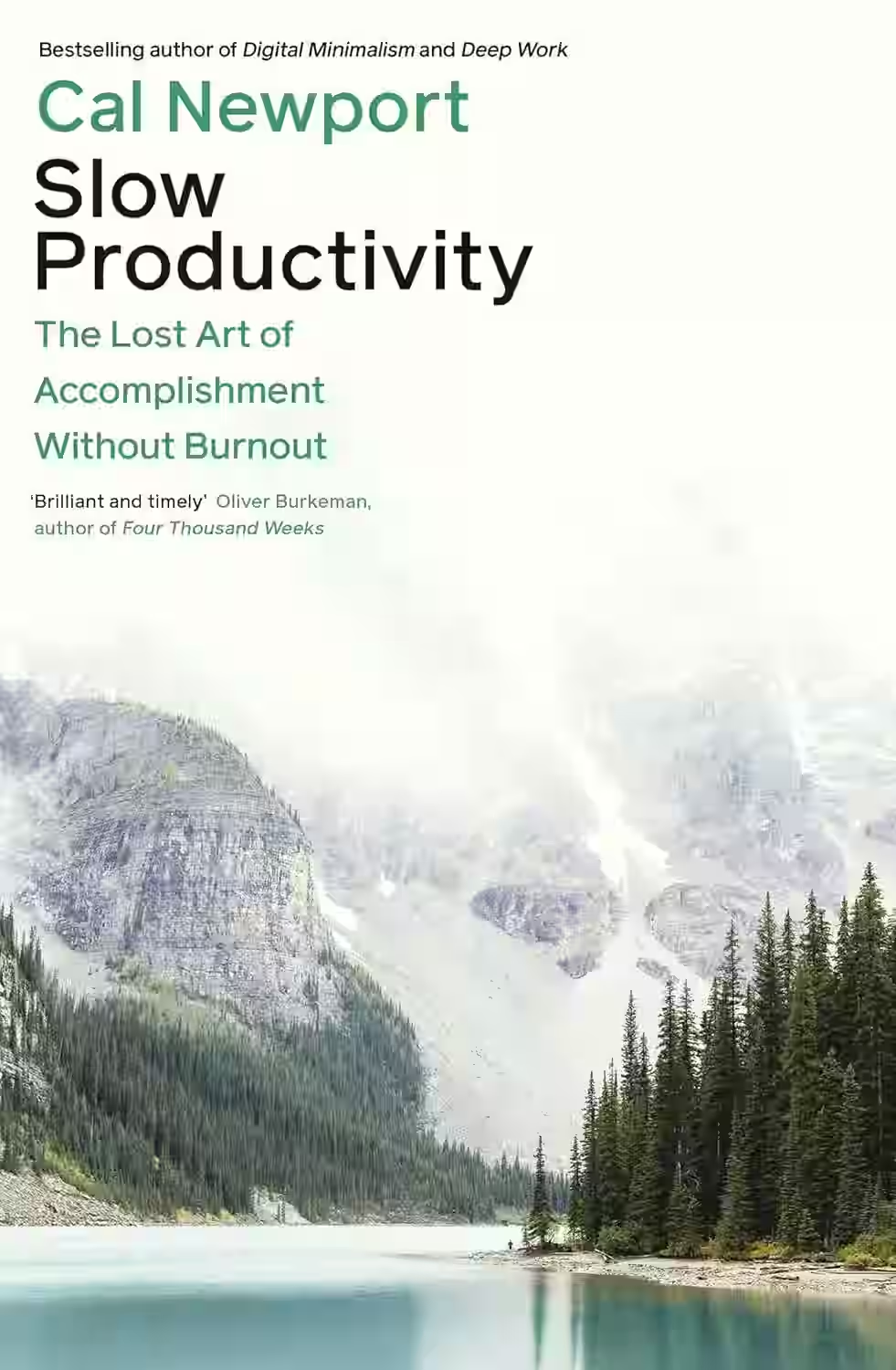
Slow Productivity
by Cal Newport
From the New York Times bestselling author of Deep Work, Slow Productivity is a groundbreaking philosophy for creating great work at a sustainable pace. Hustle culture. Burnout. Quiet quitting. Today we're either sacrificing ourselves on the altar of success or we're rejecting the idea of ambition entirely. But it doesn't have to be all or nothing. There is a way to create meaningful work as part of a balanced life, and it's called 'slow productivity'. Coined by Cal Newport, the bestselling author of Deep Work and Digital Minimalism, slow productivity is a revolutionary philosophy based on simple principles. From managing your energy according to the season, to identifying which projects to pursue and which to set aside, to building a schedule that yields maximum output with minimum stress, this timely and essential book will revolutionise how you work, helping you to accomplish great things at a more humane pace.
Similar Books
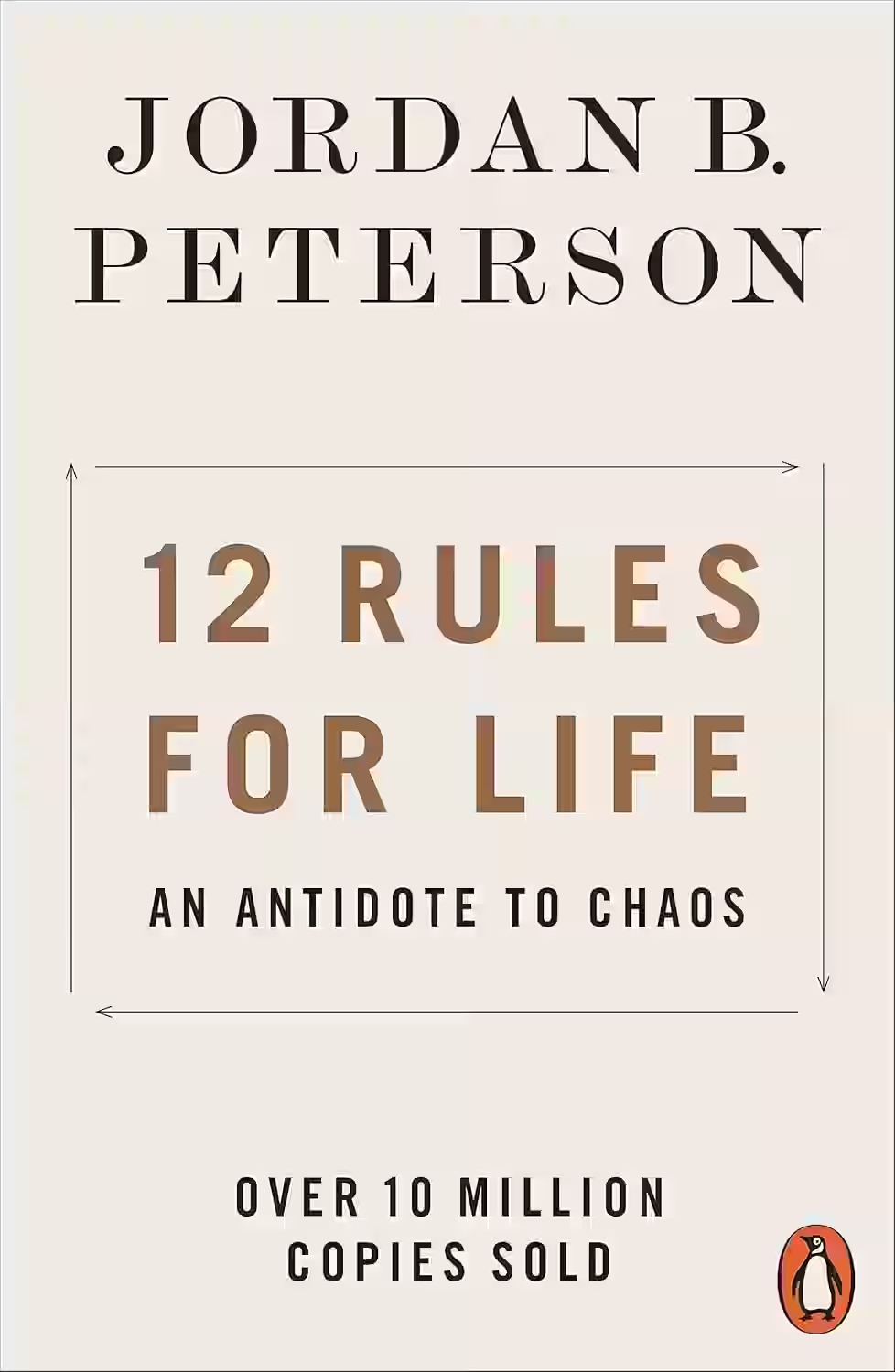
12 Rules for Life
In 12 Rules for Life, clinical psychologist Jordan B. Peterson presents life principles aimed at navigating chaos with order and purpose. Drawing from psychology, mythology, religion, and personal anecdotes, he discusses topics like personal responsibility, discipline, truth-telling, and meaning. Each chapter focuses on a distinct rule—such as “Stand up straight with your shoulders back” or “Pet a cat when you encounter one on the street.” Provocative and deeply philosophical, the book encourages readers to confront suffering and create order in their lives.
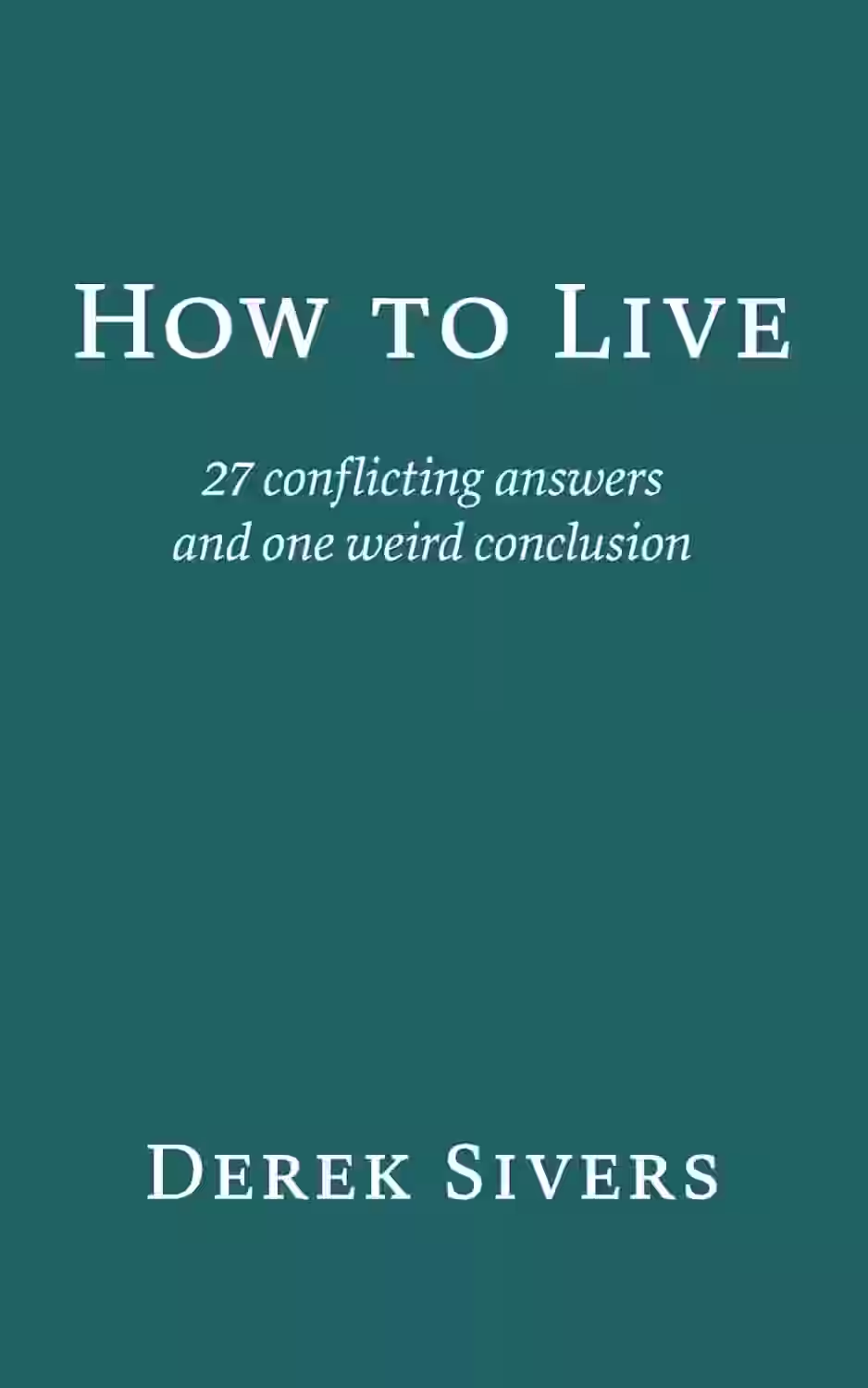
How to Live
by Derek Sivers
In How to Live, Derek Sivers offers 27 radically different philosophies for living a meaningful life—each chapter presenting a distinct worldview with confidence and conviction. From “Be independent” to “Commit fully,” the book explores contradictory yet compelling ideas, encouraging readers to reflect on what matters most. Rather than offering a single path, Sivers embraces complexity, suggesting that the truth of how to live may lie in navigating these contradictions. Written in his signature minimalist, thought-provoking style, How to Live is part philosophy, part self-inquiry, and part creative manifesto—ideal for readers seeking clarity, flexibility, and personal growth.

Man’s Search for Meaning
In this profound memoir and psychological exploration, Holocaust survivor Viktor Frankl shares his harrowing experiences in Nazi concentration camps and the insights he gained. Central to the book is Frankl’s belief that even in the most inhumane conditions, individuals can endure by finding meaning in their suffering. He introduces logotherapy, his psychotherapeutic method focused on the pursuit of meaning as a primary human drive. Frankl’s reflections blend personal resilience with deep philosophical and spiritual questions, making the book a timeless meditation on hope, purpose, and the human capacity to transcend hardship in search of something greater.
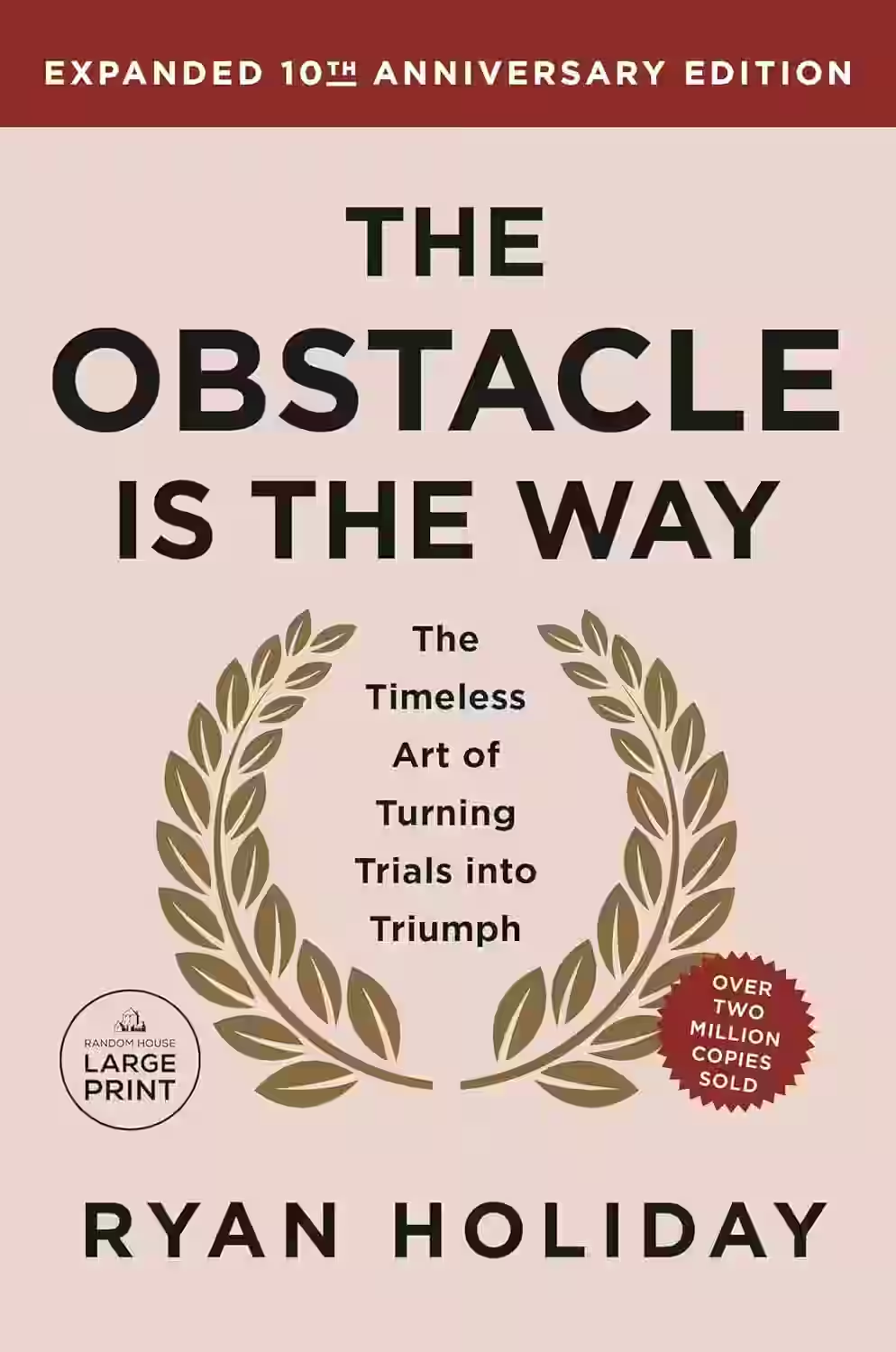
The Obstacle Is the Way
by Ryan Holiday
Based on the principles of Stoic philosophy, The Obstacle Is the Way teaches readers to transform adversity into advantage. Drawing from historical examples—from Marcus Aurelius to modern leaders—Holiday outlines a framework of perception, action, and will. His central idea: challenges are not obstacles to success, but the path itself. Through discipline, patience, and perspective, setbacks become fuel for growth. Written in a clear, concise style, the book is both motivational and practical. It has gained a wide following among athletes, entrepreneurs, and creatives seeking mental resilience and focus in the face of hardship.